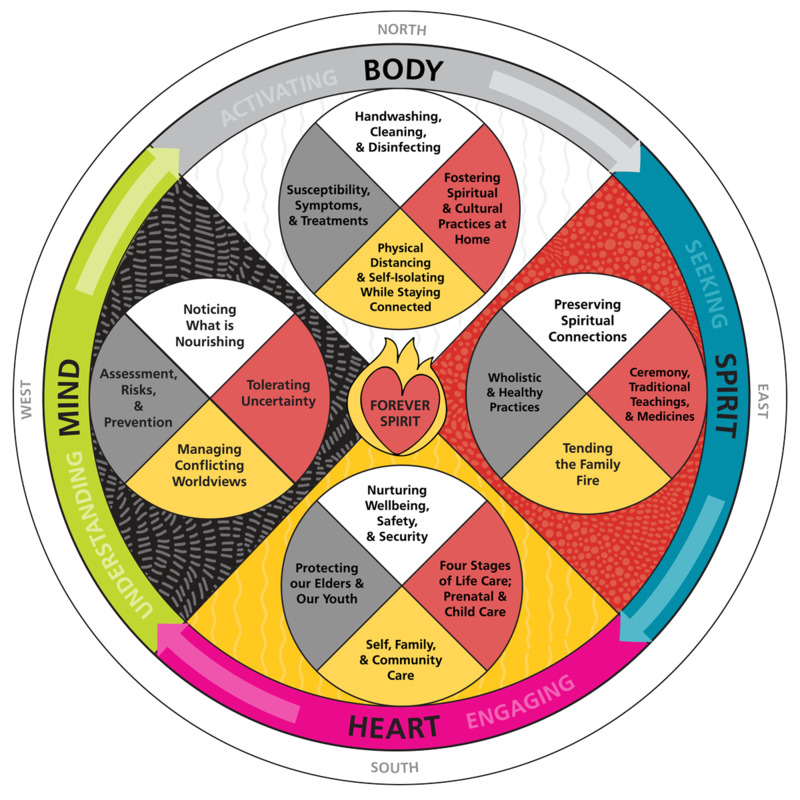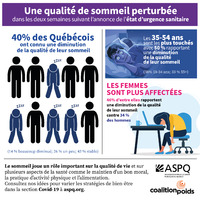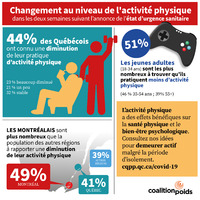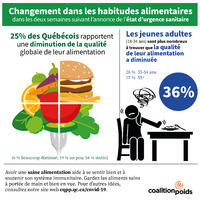It's Okay to Not Be Okay: Staying Healthy
Mental Health
Many Canadians needed additional support during the pandemic. Mental health affects our overall wellbeing. Maintaining mental health is essential to enjoying life and coping with its challenges. To the left is a resource that invokes Indigenous imagery to help Canadians manage their mental health.
Physical Health
Canadians' exercise routines were interrupted by the need to shelter in place. This disruption negatively impacted the physical health and mental health of Canadians. The health of the body and the health of the mind are linked in many ways. This includes boosting one's mood and self-esteem, reducing stress, and improving concentration, all things that had been negativly impacted by the pandemic.
Given the health crisis, notable organisations like Quebec's Coalition Poids created guides that encouraged Canadians to care for their physical wellbeing while staying safe at home. These illustrations provided valuable information about the importance of caring for their bodies.
Healthcare Workers
As COVID-19 spread, the demands put on the healthcare system and its workers increased drastically. While infection numbers grew, frontline workers were forced to face this deadly virus as they cared for their communities. They experienced extreme mental and physical stress and required specific support.
According to the Canadian Medical Association (CMA) 30% of physicians reported high levels of burnout. The demands of the pandemic posed a significant threat to medical professionals’ emotional, psychological, and physical well-being. The CMA created a website that directed healthcare workers to local support lines. The CMA also reminded Canadians that the medical profession was already a high-stress job even before COVID-19.
As COVID-19 continued to spread, the wellbeing of Canadians was threatened in more ways than one. Taking care of their mental and physical health was more important than ever. Taking care of healthcare workers became just as important. The next section is all about the conditions on the frontline of the pandemic.





